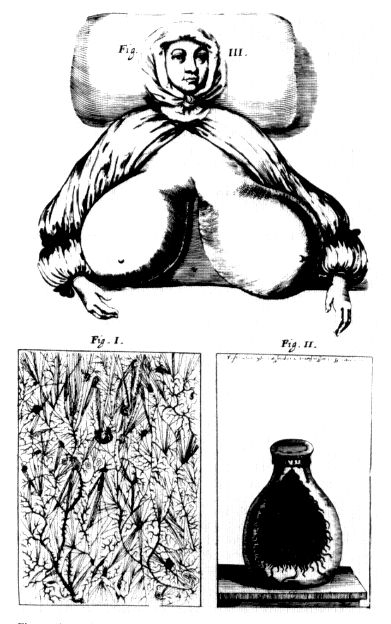Conclusion
Few readers have failed to see Gulliver's Travels as at least partially a parody of travel accounts. It opens with a satiric jab at Gulliver's "cousin Dampier," and Book II gives us an unintelligible passage of nautical jargon lifted from Samuel Sturmy's Mariners Magazine . In addition, few readers—especially since Marjorie Hope Nicolson's work on Book III—have failed to see that Gulliver's Travels is at least partially an attack on scientific experimentation. The Laputans are so wrapped up in the kind of speculative and experimental philosophy undertaken by the Royal Society that practical considerations have utterly left their heads.
To come up with easy answers concerning Gulliver's Travels is to miss the rich complexity of its satire and artistry. Nevertheless, if we regard Gulliver as a Scientific Traveler from the very beginning of Gulliver's Travels , we recognize two things: The parody of travel accounts is not restricted merely to individual passages, and the satire on the scientific method and its attendant reliance upon reason is not restricted merely to Books III and IV.
Swift's feelings concerning the Royal Society and the new experimental method must have been deep-seated
and in some ways prophetic. His Erastian views led him to regret that the Test Act did not apply to membership in the Royal Society. But more important, he must have seen travel accounts as instruments of the Royal Society. Relying as they did upon the scientific method, they would lead travelers and readers away from issues of morality and orthodoxy. Poring over the book of nature meant slighting the book of God. Swift might well have agreed with Henry Stubbe, who believed that "studying of natural philosophy and mathematics was a ready method to introduce scepticism at least, if not atheism, into the world."[53]
Gulliver is a Scientific Traveler throughout Gulliver's Travels . In Part I, he dissects Lilliputian society. We of course know that Lilliput equals England, but he does not. In Part II, he dissects Brobdingnagian society—comparing it with his own and finding it deficient. We of course know that Gulliver is to a large extent wrong. In Part II he also dissects giant wasps, and like a good member of the Royal Society he presents their stingers to Gresham College. He also carefully examines the breasts of the giant Brobdingnagian women. Figure 4.4 might be called a "centerfold" from the Philosophical Transactions of the Royal Society ;[54] it is meant to illustrate "An Account of a Very Sudden and Excessive Swelling of a Woman's Breasts." Chances are slight that this particular picture influenced Gulliver's Travels ; chances are great, however, that such preoccupation with scientific inquiry did.
So far I have suggested that Gulliver is first and foremost a Scientific Traveler. But unlike Dampier, Boswell, and Cook, he is no hero. As we saw in the first part of this study, the returning traveler was usually feted and dined; Gulliver, however, refuses to eat with humans unless his nose is stuffed with rue, lavender, or tobacco. In Gulliver's desire to become totally rational, he has become irrational. The scientific method of Gulliver—which most of the century's travel accounts glorified and which Swift detested—has to a large extent led to this insanity. Dampier and

Figure 4.4.
"An Account of a Very Sudden and Excessive Swelling of a
Woman's Breasts," Philosophical Transactions of the
Royal Society (17 Oct. 1669), plate facing p. 1041.
Gulliver both undertake voyages of discovery. Dampier is the age's Scientific Hero; Gulliver is Swift's Scientific Antihero.